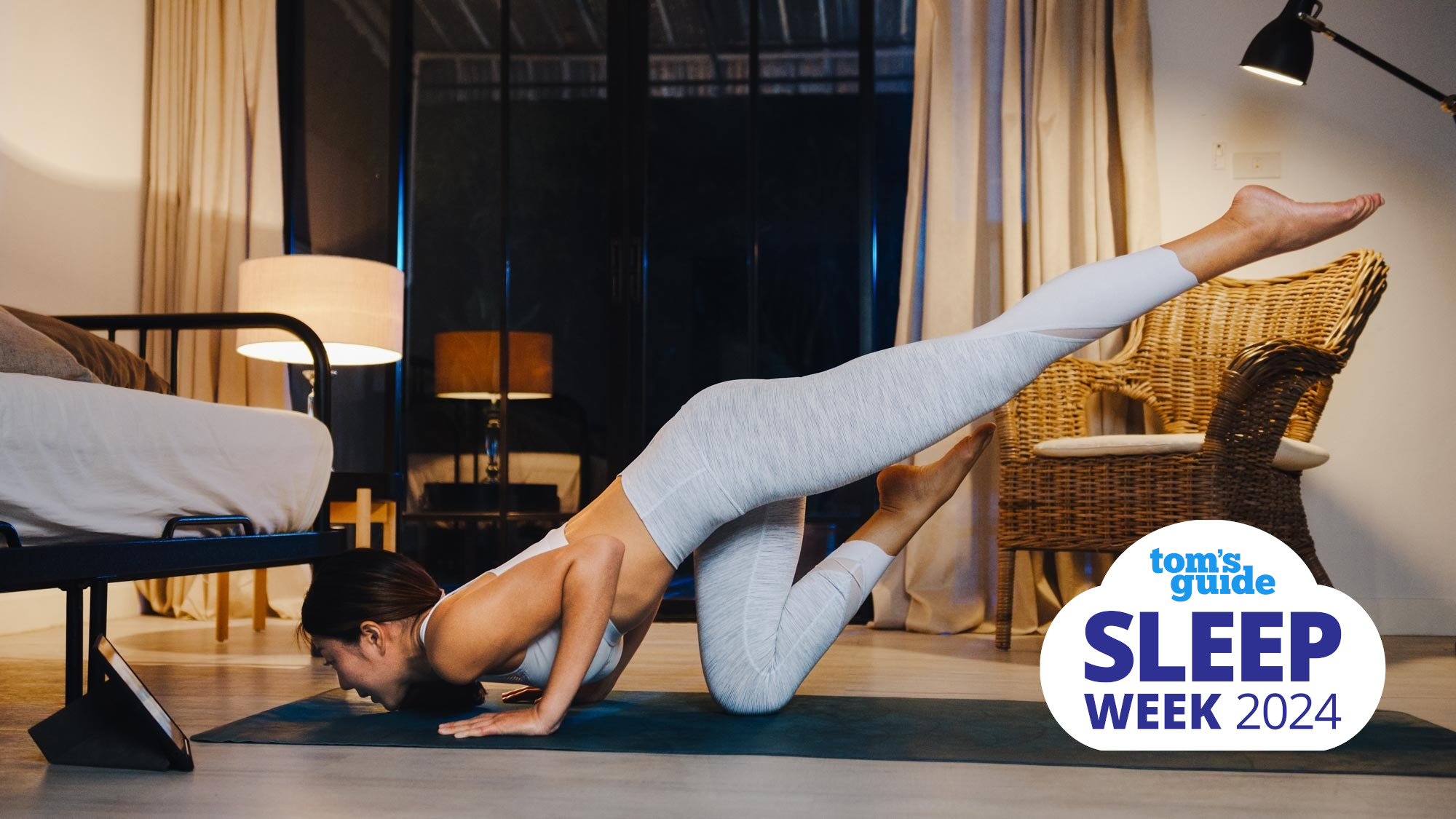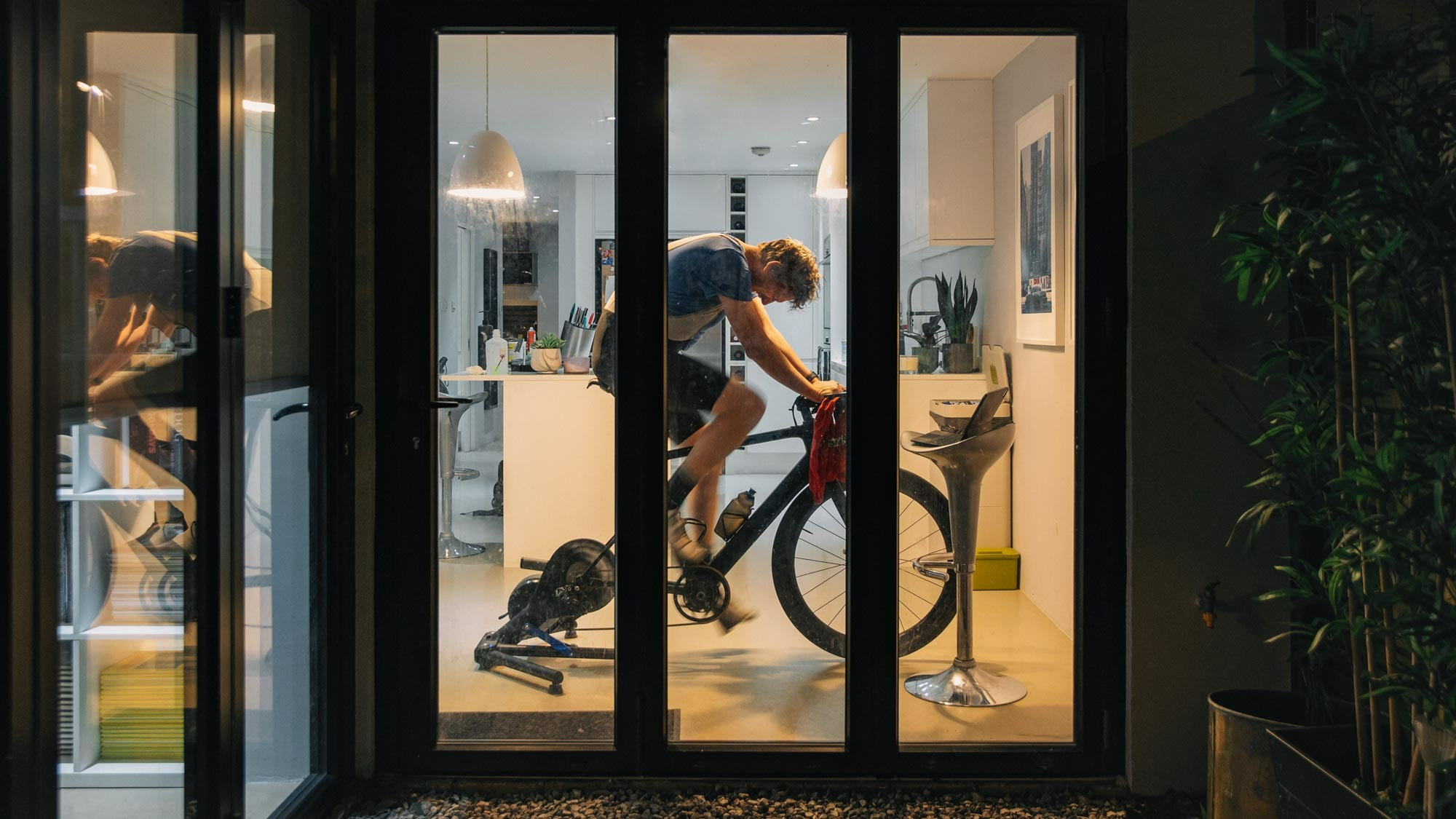Should you exercise before bed? Here's what the experts say
Sleep better by exercising earlier

Finding time to exercise each day can be difficult. In between work, socializing, and eating healthy, fitting in a workout can feel impossible. So maybe you get to the end of the day and wonder, should you exercise before bed?
If you're not a morning person or you start work early, evening exercise might be the best option for you practically. Plus, maybe you enjoy getting a sweat on just before settling down for the night. However, when you choose to exercise can make a big difference to its effects.
But since you can easily pick up some adjustable dumbbells and train whenever it takes your fancy, it can be tempting to lift the weights just before you turn out the lights and head to bed. But should you?
We spoke to Ali Malik, a personal trainer and founder of Fit Labs Kensington, and looked at the research to figure out exactly how evening exercise affects your health and the best ways to move if you want to work out before bed.
Is it a good idea to exercise before bed?
While there's no conclusive evidence whether exercising just before bed is a good idea, according to Malik, it's mostly down to personal preference. "Physically, everyone is different. It's advisable for people to experiment with training at different times of the day," he says.
It was a long-held belief that intense exercise before bed could negatively impact your sleep, but recent studies have challenged that idea. In fact, according to research in the European Journal of Sports Science, moderate-intensity might not affect your sleep at all.
It was a small study — just 12 men — and they had to do 30 minutes of activity, including aerobic exercise and resistance training — 90 minutes before going to bed, and it didn't appear to impact their overnight body temperature or sleep quality.
Get instant access to breaking news, the hottest reviews, great deals and helpful tips.

There's also some evidence exercising before bed could even improve your sleep, but it depends on what you do. A review published in Sports Medicine found that training before bed could improve sleep quality, so long as it's not vigorous and ends more than one hour before bedtime.
Malik stresses that if you're going to exercise before bed, it's a good idea to avoid high-intensity workouts. "There are some benefits to doing some light to moderate exercise before bed, rather than high intensity. It can help you feel more relaxed and help to destress and regulate the circadian rhythm," Malik says.
"Exercise like yoga, taking a long walk, stretching, or any other low-impact exercises are good options for before bed," he adds. Walking workouts can be a great place to start, as you'll move your body, but you can also use them as a calming mindfulness practice too.
Does working out before bed burn more fat?
"In general, there's not going to be a significant difference between your calorie burning rate in the evening or any other time of the day," Malik says. So, you're not likely to see greater fat loss by training at night.
Plus, there's not even much research to suggest that you get better fat-burning results later in the day. One study in the journal Frontiers in Physiology found that evening workouts could burn more fat in men, while women may burn more abdominal fat in the mornings.
However, it's not conclusive and the study didn't examine the effects of training just before bed, so the best time to exercise will be whenever it feels right for your body, fits into your schedule, and can be a regular part of your routine.
Is 100 push-ups before bed good?
If you want to set yourself a challenge like doing 100 push-ups per day, Malik recommends doing this in the morning instead of the evening, as this is a form of high-impact exercise.
"Doing 100 push-ups will definitely elevate your body temperature and your heart rate, putting excess stress on your muscles and nervous system," Malik explains.
If you do want to do high-intensity exercise before bed, like a push-up challenge or HIIT workouts, Malik recommends that you leave at least 90 minutes between working out and going to sleep.
Why you shouldn’t exercise at night
Experts largely agree that high-intensity exercise too close to the time you go to sleep, such as HIIT workouts or lifting weights could negatively impact your sleep, so you're better off with low-impact sessions instead.
"Doing high-intensity exercise stimulates the nervous system, elevating the heart rate and your body temperature, which might not come down before you go to sleep," Matik says.
This can lead to poor-quality sleep, which can affect your health and weight loss goals. "When you sleep badly, it raises your stress levels and makes your body reluctant to shed fat. So, you should avoid doing things that elevate your cortisol levels," explains Matik.
Plus, high-intensity exercise just before bed has been linked to lower sleep efficiency and less time in REM sleep, which is when your brain processes new information and consolidates memories, a meta-analysis published in Sleep Medicine Review found.
So, if you want to get a good night's rest, it's best to avoid late-night workouts, unless you want to do some gentle stretches or a calming yoga class and focus on improving your sleep hygiene instead.
More from Tom's Guide
- Boost your mental strength with this five-minute guided breathing workout
- The best relaxation apps
- The 7 best breathing exercises for sleep —fall asleep faster, easier and for longer

Alice Porter is a freelance journalist based in the UK, covering health, wellness and lifestyle. She writes for titles including Fit&Well Women's Health, Stylist, Glamour, The iPaper, The Telegraph and more. In 2025, her first book An Opinionated Guide To Active London was published by Hoxton Mini Press, covering 58 of the best places to move your body in the capital. Alice has a wide range of experience covering women's health, fitness and other wellness topics like nutrition and sleep. In her personal life, she prides herself on her varied fitness routine, incorporating strength training, yoga and reformer Pilates, as well as a friendly game of tennis into her weekly training schedule.
 Club Benefits
Club Benefits





